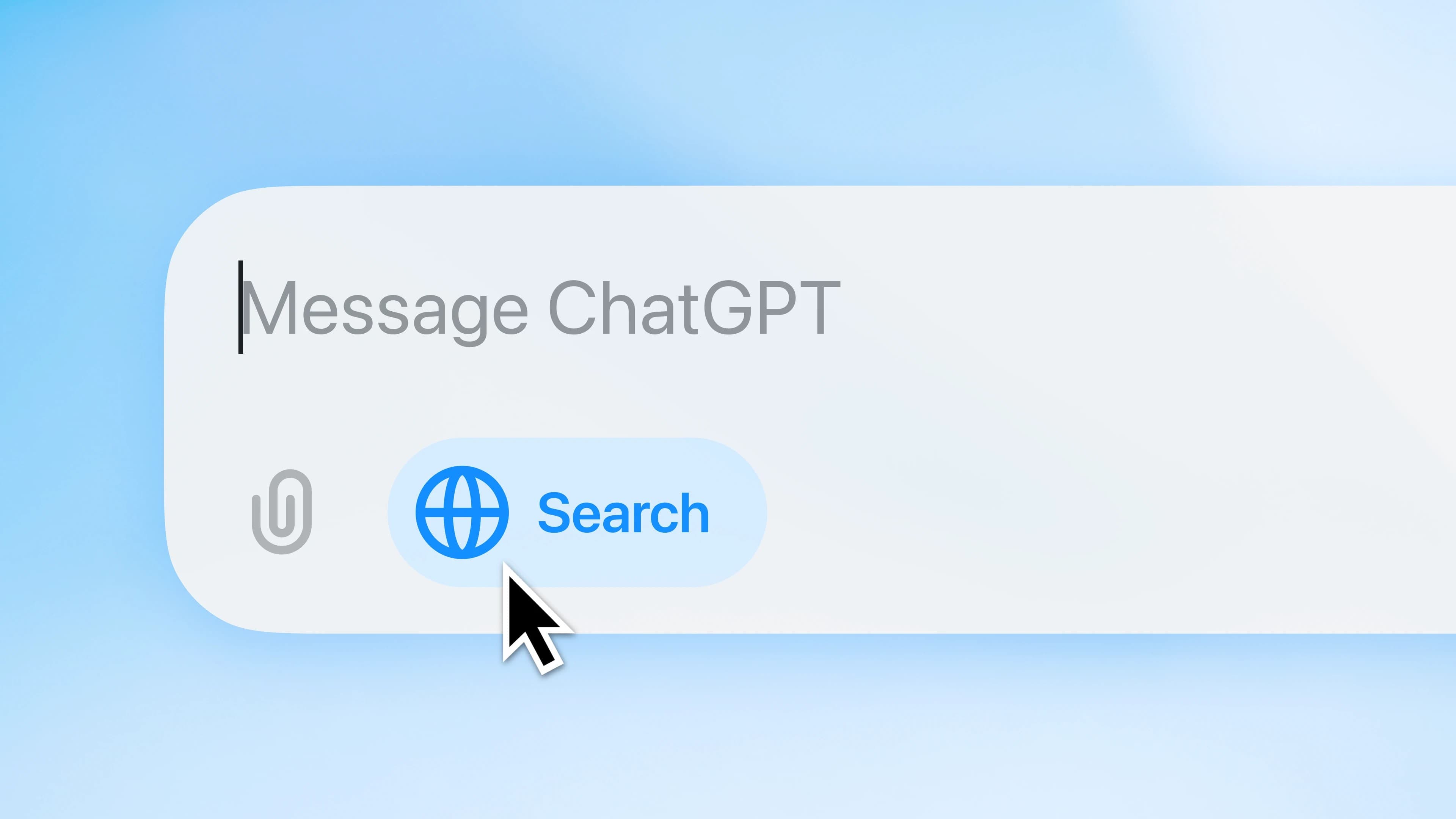ChatGPT Search – Does It Deserve the Fanfare?

THE NEW SEARCH ENGINE
They’ve been hinting at it for a while, but it’s finally happened, and in their own words (following a quick question to Chat GPT) – “the new ChatGPT Search will present you with timely, relevant answers, provide live updates, share visuals for things like the latest weather and stock prices, and showcase all relevant sources to the user for further reading.”
We were all wary at first, but over the past couple of years ChatGPT, developed by OpenAI, has rapidly become the go-to tool for AI assistance. It’s single-handedly changed how people interact with technology by making ‘advanced language processing’ accessible and intuitive for the user. Their move into the Search space is significant, and positions ChatGPT as a direct competitor to traditional search engines like Google. With its ability to provide personalised, context-aware responses, ChatGPT offers users an alternative to traditional SERPs with no sifting through links or scrolling through ads, and this has got Google on edge.
Why are Google so concerned?
This development could disrupt the core of Google’s business model by keeping users within a single platform for both information and decision-making, plus it could diminish the relevance and value of their search-based advertising model – so you can quickly see why Google is feeling alarmed.

So, as potentially the largest threat to Google’s market share in decades, ChatGPT Search is competing to take the lead, not only able to match the functionality of Google’s AI Overviews that launched earlier this year, but fuelled to go beyond them with its already established ability to interact effectively with users on a much more conversational level.
With AI remaining at the forefront of people’s interest, and the already large uptake in users for the standard ChatGPT models, there’s a high chance we’ll begin to see a shift in user behaviour as this new offering rolls out. Similar to the impact of TikTok Search, we could see the general public moving away from Google and traditional search solutions and spending time on other more user friendly platforms. Marketers must diversify their organic strategies in order to retain results, reach audiences and drive growth across platforms.

How does Chat GPT Search work?
Chat GPT Search is essentially an upgraded version of the current 4.0 model, and so works in very much the same way as the current version available to the public. The main difference is now ChatGPT Search will be providing real time recommendations for you, providing informational citations and links to other sites in the same way we’ve known to expect from the likes of Google and Bing.
The search index itself appears to be based on Bing’s search engine – possibly hinting at greater partnership between Microsoft and OpenAI.
With this in mind, ensuring proper indexing by Bing as well as Google will certainly improve your chances of being found. Plus, allowing OAI-SearchBot (the primary crawler for ChatGPT Search) within the robots.txt for your site, means pages can be more easily crawled and indexed by the platform, making you instantly more discoverable.
ChatGPT Search has long been expected to be the new challenger to Google, but in practice is that really the case?
Ultimately the way in which ChatGPT search operates is not that different from the current Google set up. ChatGPT prides itself on the development of their groundbreaking Large Language Models (LLMs) and how it leverages these to analyse huge swathes of data to build a better understanding of what the user is really after. Google however, is not new to the LLM game. In fact LLMs and Natural Language Processing (NLP) have always been a core component of how the Google algorithm works with BERT (Bi-directional Encoder Representations from Transformers) and their Multitask Unified Model (MUM) helping Google better understand search intent.

The evolution of Search
Search solutions are providing more context than ever before, gradually removing the user’s need to visit external websites, resulting in a better experience for the consumer, but meaning publishers must not shy away from other emerging search platforms like TikTok, Reddit and Youtube to re-optimise their content and continue driving organic traffic to their site.
The main difference lies in the elevated user experience, with ChatGPT Search presenting information in a single, conversational response rather than the typical search engine results page (SERP) with lists of links. The narrative-style answers allow for follow-up questions, keeping the conversation tied to the original topic without any of the usual interruptions like paid ads or sponsored content.
As previously mentioned, Google’s AI Overviews and also Bing’s Copilot technology have tried their best to provide a ‘ChatGPT-like’ experience within the traditional SERPs, but these still feature separate linked results and cannot facilitate the interactive Q&A that ChatGPT Search will provide.
It is this ‘evolution of search’ that poses both the biggest opportunity and the biggest risk for brands, and with things changing so rapidly there’s never been a more crucial time for businesses to partner with specialist agencies who have the technical expertise to identify how and why things are happening and the flexibility to adapt to changes at speed. Early adopters of new technologies often come out on top, and so having experts to hand who are one step ahead is essential to help you future-proof your organic strategy.
What does this mean for your SEO Strategy?
Ultimately, ChatGPT Search is going to provide a great new conversational approach to users finding information, and despite the fanfare, the overall impact on search strategy will remain pretty small.
Keyword targeting and creative, credible, quality content is still paramount for relevance and rankings. Making your content of value to the user is going to be even more important than ever with ChatGPT having a more advanced understanding of context than other platforms have had up to this point.
As mentioned above, we know that ChatGPT Search still operates on principles similar to the traditional search engines, relying on crawled and indexed content and LLMs to serve the most relevant information to consumers. This means Marketers can lean into structured data and schema markup to improve the relevance of their content, enhancing their presence in search responses and improving overall accuracy.
Having a strong Search Experience Optimisation (SXO) plan in place is what will help brands stay competitive in this diversifying market – and while the platform brands are best placed to reach their audiences on might change, the focus for their organic output should stay on creating high-quality, authoritative content that’s clear, topic-relevant, and trustworthy.
By building credible backlinks brands will continue to enhance content authority and visibility across platforms and by leaning into more long-tail keyword optimisation they could capture an uplift in traffic given the emerging preference for longer-form search styles and response expectations.
To summarise
ChatGPT Search might shake up how people look for information, but the fundamentals of a strong search strategy hold firm. High-quality, trustworthy content remains king, and brands that double down on SXO, structured data, and long-tail keywords will stay ahead of the competition.

 Search
Search PR
PR AI
AI Social
Social














